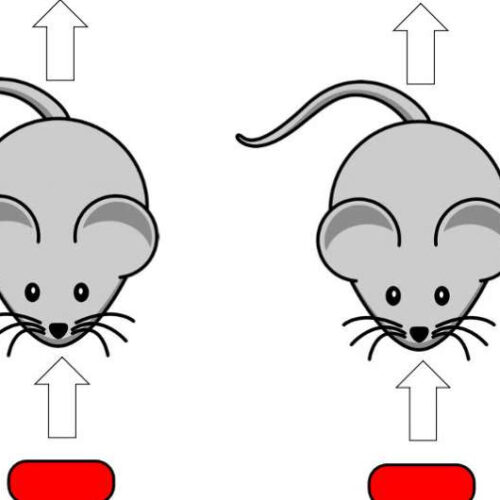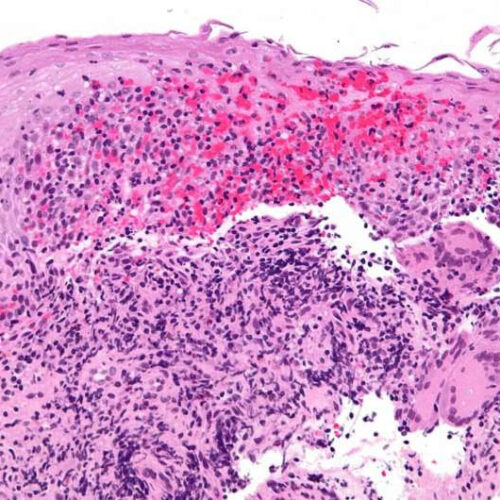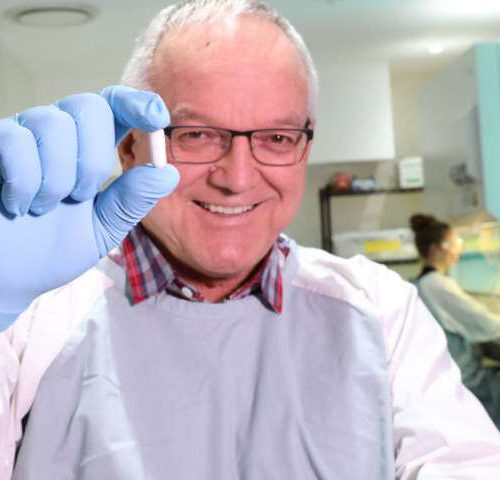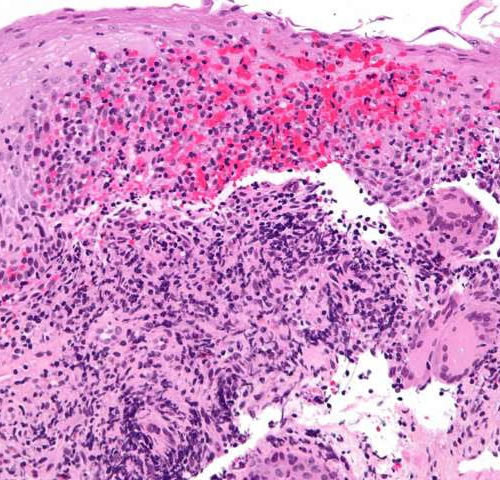by Rice University Rice University researchers engineered a strain of the gut bacteria E. coli to detect gastrointestinal acidosis. The organism produces fluorescent molecules that allow researchers to see it with standard optical equipment. Under normal conditions (left) it produces molecules that glow red. When it encounters acidic conditions (right), it glows green, and the brightness...
Tag: <span>Crohn’s disease</span>
Crohn’s disease patients have specific IgG antibodies to human bacterial flagellins
by Jeff Hansen, University of Alabama at Birmingham High magnification micrograph of Crohn’s disease. Biopsy of esophagus. H&E stain. Credit: Nephron/Wikipedia Last year, Charles O. Elson, M.D., demonstrated a potential preventive treatment for Crohn’s disease, a form of inflammatory bowel disease. He used a mouse model that included immune-reactive T cells from patients with Crohn’s disease...
Mount Sinai study reveals genetic and cellular mechanisms of Crohn’s disease
THE MOUNT SINAI HOSPITAL / MOUNT SINAI SCHOOL OF MEDICINE Mount Sinai researchers have identified genetic and cellular mechanisms of Crohn’s disease, providing new insights for future treatments that could offer a tailored approach to patients with the chronic inflammatory disease, according to a study published in Nature on March 31. The researchers found that blocking the common cytokine receptor subunit...
Study identifies ‘Achilles heel’ of bacteria linked to Crohn’s disease
WEILL CORNELL MEDICINE The discovery of an “Achilles heel” in a type of gut bacteria that causes intestinal inflammation in patients with Crohn’s disease may lead to more targeted therapies for the difficult to treat disease, according to Weill Cornell Medicine and NewYork-Presbyterian investigators. In a study published Feb. 3 in Cell Host and Microbe, the...
Coenzyme Q10 could treat mitochondrial diseases, colon cancer, thyroid carcinoma and Crohn’s disease
by University of Granada Graphic overview of the research. Credit: University of Granada Coenzyme Q10 (CoQ10) is a molecule essential for life that is synthesized in the cells of our organs and tissues, but is also acquired through diet Scientists from the University of Granada demonstrate for the first time that a CoQ10 supplement is capable of modulating hydrogen...
Potential preventative treatment demonstrated for Crohn’s disease
UNIVERSITY OF ALABAMA AT BIRMINGHAM BIRMINGHAM, Ala. – A potential preventive treatment for Crohn’s disease, a form of inflammatory bowel disease, has been demonstrated in a mouse model and using immune-reactive T cells from patients with Crohn’s disease. This research, led by University of Alabama at Birmingham researcher Charles O. Elson, M.D., professor of medicine, focused...
Study: Antibiotic and ‘crapsule’ therapy eliminate need for further treatment of Crohn’s disease
by Centre for Digestive Diseases The Centre for Digestive Disease (CDD) headed by Professor Thomas Borody has cured Crohn’s disease as reported today by Dr. Gaurav Agrawal in Gut Pathogens. Professor Borody is internationally recognized for curing stomach ulcers caused by H. pylori, and is currently researching the infection connection associated with heart disease. He...
Researchers unveil mechanisms to prevent Crohn’s disease
by The Mount Sinai Hospital In a series of four studies published today in Gastroenterology, a journal of the American Gastroenterological Association, Mount Sinai inflammatory bowel disease (IBD) researchers, describe the identification of predictive tools and a new understanding of environmental factors that trigger IBD. “Early identification of individuals at high risk for disease development...
Common genetic variant explains why immunotherapy often fails in Crohn’s disease
By Lois Zoppi, BAReviewed by Kate Anderton, B.Sc. (Editor) The reason why a commonly used range of drugs is not effective in some patients living with Crohn’s disease has so far not been identified. However, a collaboration between the University of Exeter, Royal Devon & Exeter NHS Foundation Trust and the Wellcome Sanger Institute has discovered a genetic marker...
Crohn’s Disease study reveals huge potential for personalised treatment to help more patients
The largest study ever to look at why an expensive and commonly used group of drugs fails patients with Crohn’s disease has concluded that standardised drug doses are often too low. A UK wide collaboration led by the University of Exeter and the Royal Devon & Exeter NHS Foundation Trust, part-funded by Crohn’s & Colitis...





